With the ever-increasing demand for portable and energy-efficient devices, batteries have become a critical component in our daily lives. LiFePO4 batteries are one of the most popular battery technologies used in various applications, from electric vehicles to portable devices. In this article, we will focus on the 3.2V LiFePO4 prismatic battery, exploring its features, applications, and advantages over other battery technologies.
What is a 3.2V LiFePO4 Prismatic Battery?
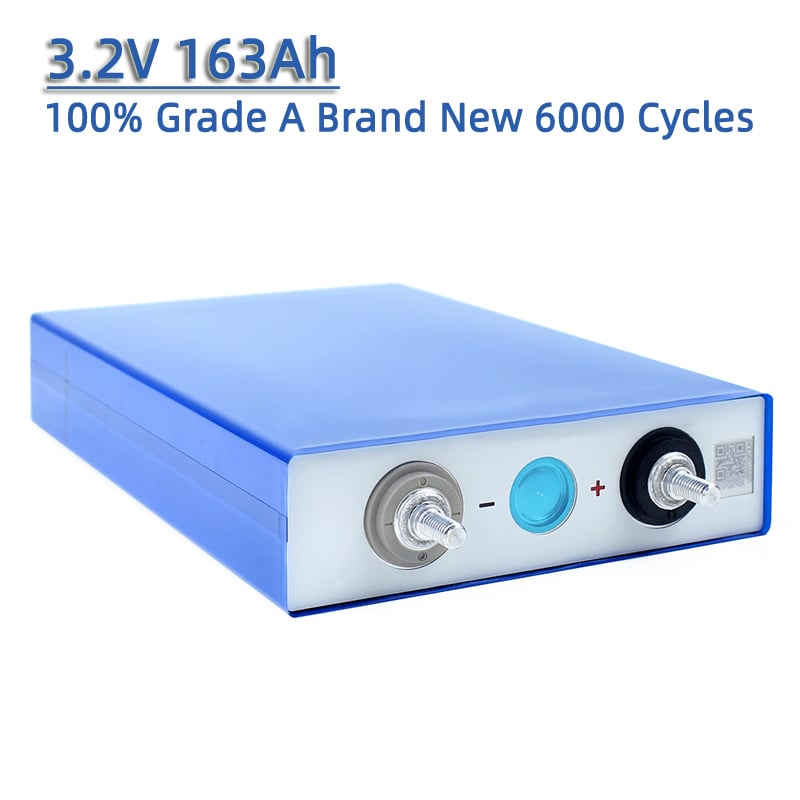 |
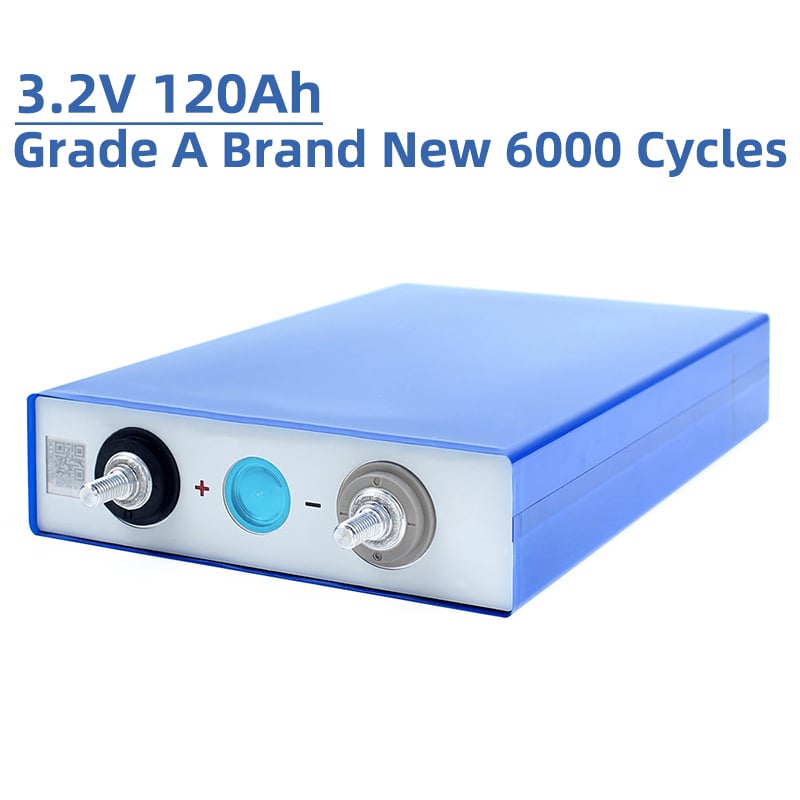 |
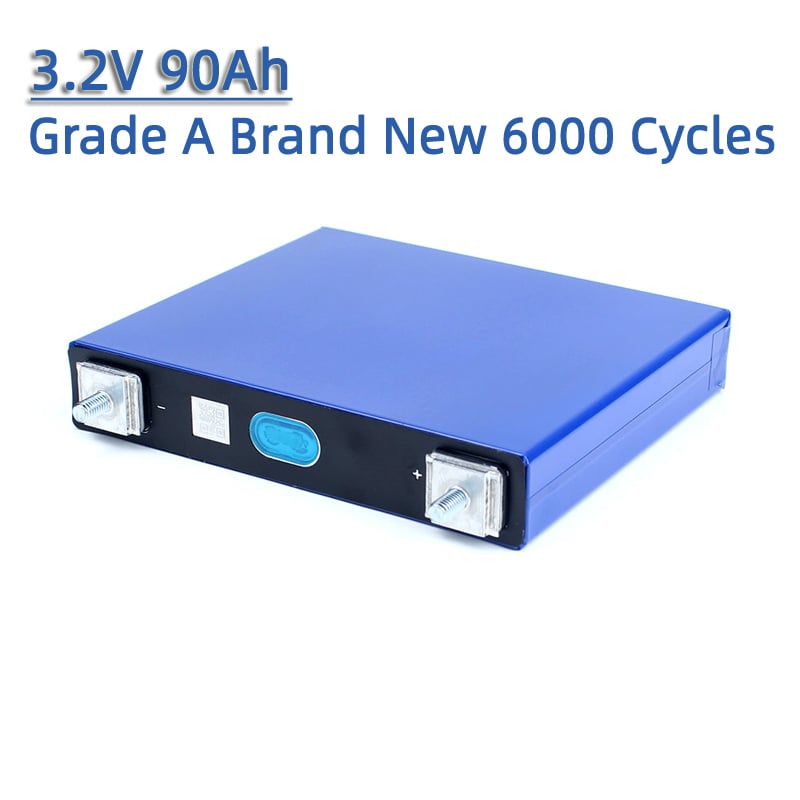 |
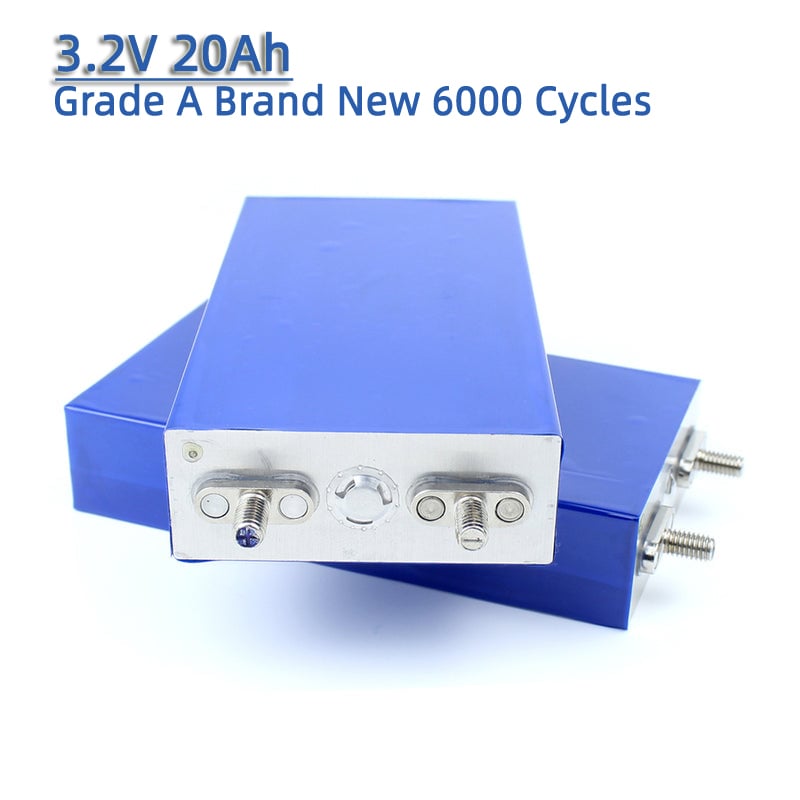 |
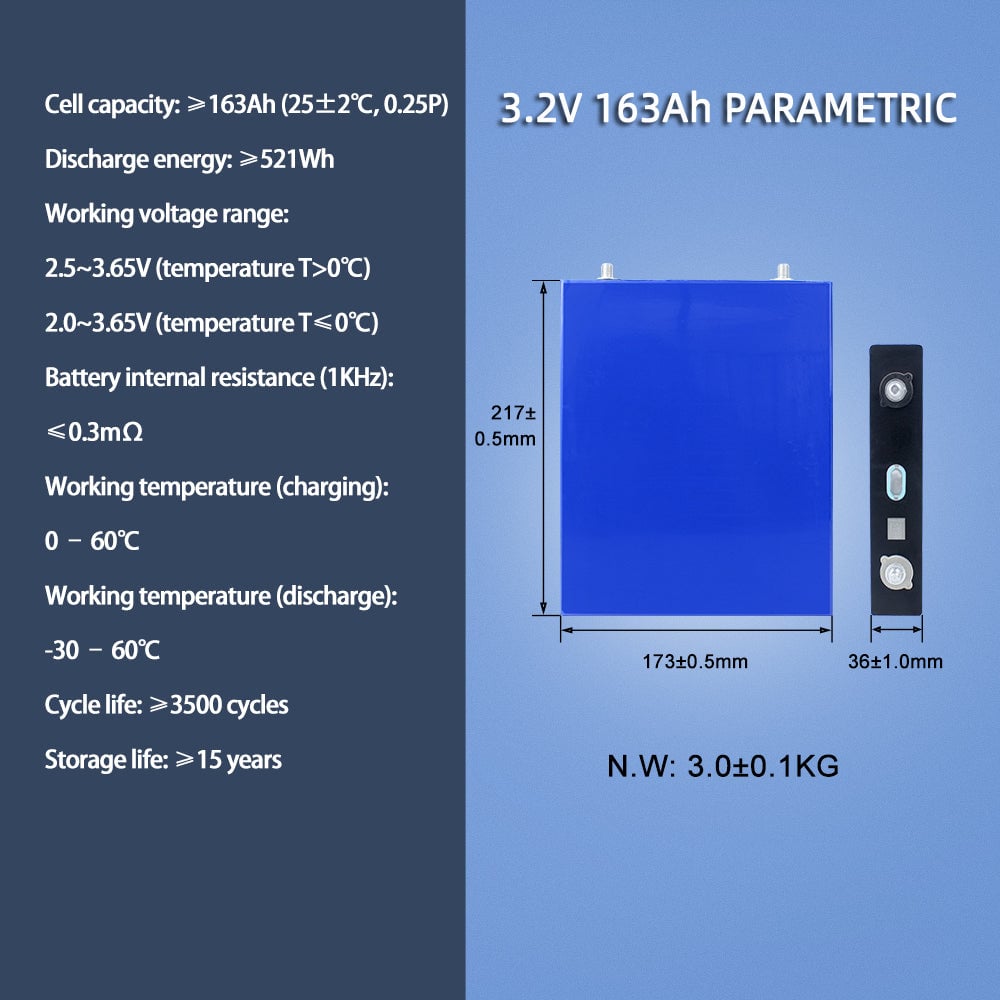 |
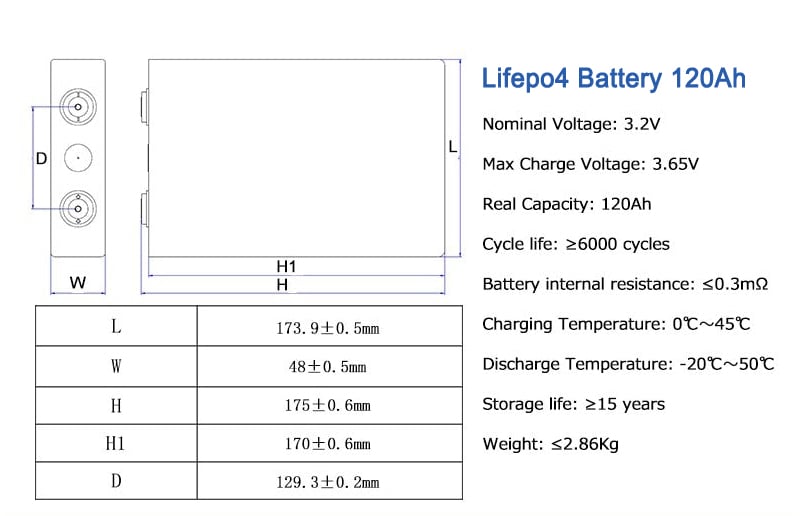 |
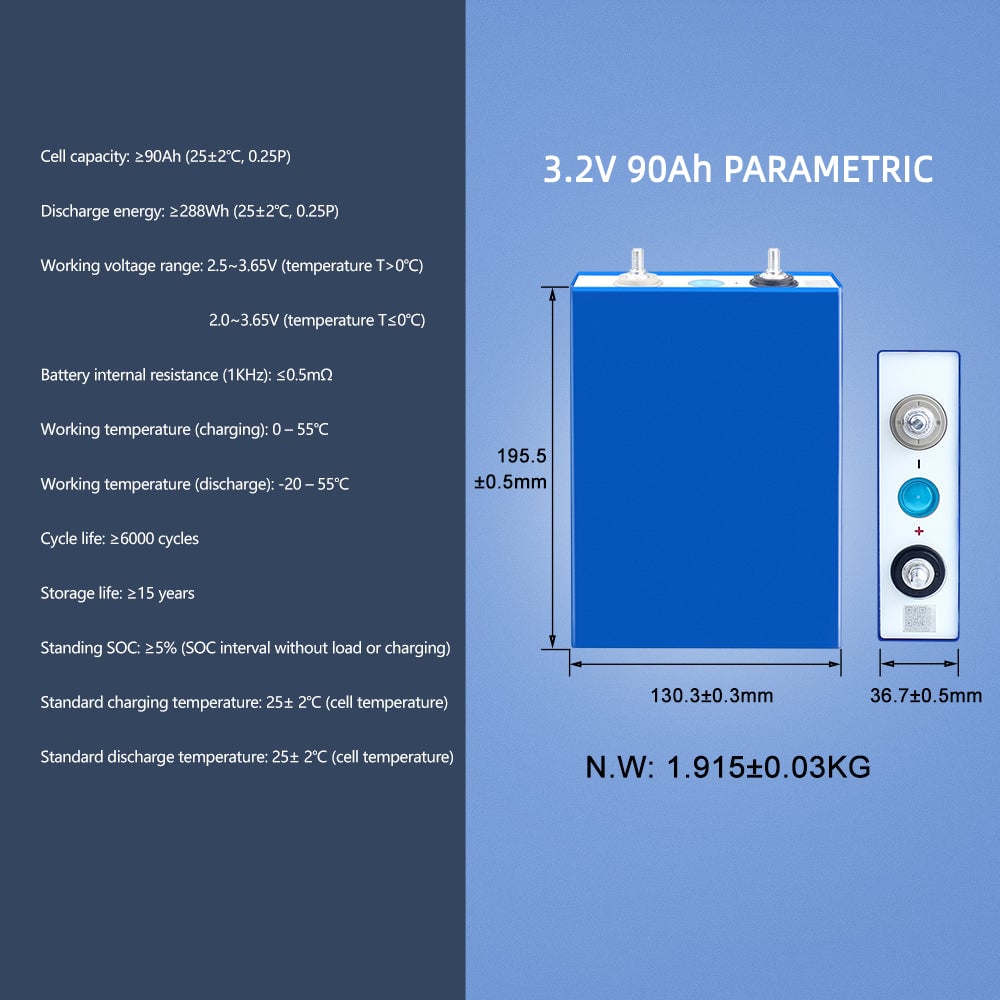 |
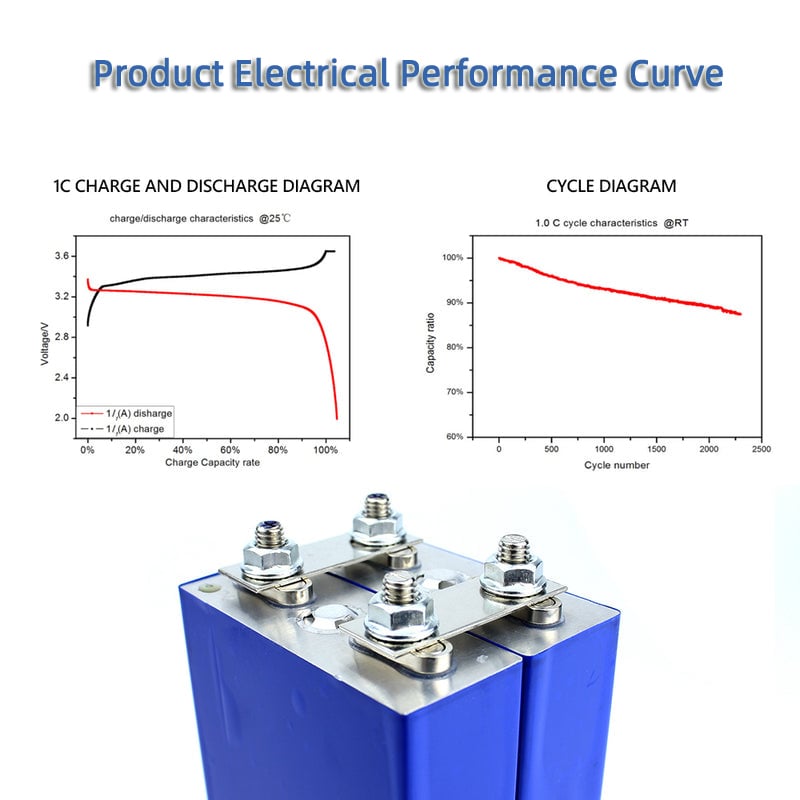 |
A 3.2V LiFePO4 prismatic battery is a rechargeable lithium-ion battery with a nominal voltage of 3.2V per cell. It consists of a series of prismatic-shaped cells, which are made of lithium iron phosphate (LiFePO4) as the cathode material. This type of battery is known for its high energy density, long cycle life, and high-temperature tolerance, making it an ideal choice for various applications.
What are the Features of a 3.2V LiFePO4 Prismatic Battery?
One of the most significant features of a 3.2V LiFePO4 prismatic battery is its high energy density. It can store more energy per unit volume and weight than other battery technologies such as lead-acid and nickel-metal hydride batteries. This means that devices powered by LiFePO4 batteries can run for a longer time between charges.
Another key feature of LiFePO4 batteries is their long cycle life. They can withstand up to 6000 charge and discharge cycles, which is significantly higher than other lithium-ion batteries. This makes them a cost-effective option in the long run, as they can last for many years without needing replacement.
LiFePO4 batteries are also known for their high-temperature tolerance. They can operate at temperatures up to 60°C without experiencing any significant degradation in performance. This makes them an ideal choice for applications where high temperatures are expected, such as electric vehicles and solar energy storage systems.
What are the Application Scenarios?

3.2V LiFePO4 prismatic batteries have become the preferred choice for a wide range of applications, including UPS, golf carts, motorcycles, e-bikes, yachts, solar power, wind power, RVs, ice fishing, fishing boats, forklifts, motorized wheelchairs, and home storage systems.
UPS
Uninterruptible power supply (UPS) systems provide backup power during outages or brownouts. LiFePO4 prismatic batteries are an excellent choice for UPS systems due to their high energy density, longer lifespan, and faster charging times. These batteries are also more reliable and safer than traditional lead-acid batteries, making them ideal for critical applications.
Golf Carts, E-Bikes, and Motorcycles
LiFePO4 prismatic batteries are ideal for powering electric vehicles, including golf carts, e-bikes, and motorcycles. These batteries provide longer range and faster charging times than lead-acid batteries, making them more practical for daily use. They are also much lighter than lead-acid batteries, improving the overall performance of the vehicle.
Yachts, RVs, and Home Storage Systems
LiFePO4 prismatic batteries are also ideal for use in yachts, RVs, and home storage systems. These batteries can store large amounts of energy, making them ideal for applications that require backup power or off-grid power solutions. Additionally, these batteries can be charged by solar power or wind power, making them a sustainable and eco-friendly solution.
Ice Fishing and Fishing Boats
LiFePO4 prismatic batteries are perfect for powering ice fishing equipment and fishing boats. These batteries provide long-lasting power and can withstand harsh weather conditions, making them ideal for use in these applications.
Forklifts and Motorized Wheelchairs
LiFePO4 prismatic batteries are also commonly used to power forklifts and motorized wheelchairs. These batteries provide longer run times and faster charging times than traditional lead-acid batteries, making them more practical for everyday use.
What are the Concerns of Customers and Purchasers on 3.2V LiFePO4 Battery
For standard products, customers will mainly look at the brand of the battery, whether it is a Grade A battery, battery capacity, service life, and whether there are overseas warehouses; For individual users, the next concern is price, while for corporate users, the focus is delivery time.
For customized products: In addition to the above standards, customers also value whether the factory can customize batteries with the company's name. Therefore, customers will need to place a sample list first, and then pursue a stable relationship of long-term cooperation.
You can find some answers to the concerns in the contents mentioned above, and the other answers to the concerns are in the next section.
How Do Keshee Batteries Differ from Other Brands?
Compared to CATL, EVE, GUOXUAN HIGH-TECH and other brands, Keshee batteries stand out for their Grade-A quality. Unlike some factories that sell Grade-B batteries, we only provide Grade-A batteries to our customers. We also offer a wide range of battery categories, giving customers plenty of choices.
At Keshee, we have a strong ability to customize battery products, which is especially useful for customers who run their own company. Our 3.2V LiFePO4 Batteries are known for their high density, giving them stronger and larger capacity than their peers.
In terms of shipping, we pride ourselves on our diversity of couriers, which enables us to ship our products worldwide at competitive prices and on time. We have extensive experience in exporting and can handle all shipping arrangements, packaging, quotas, and custom formalities, ensuring that your shipment is delivered on time. Additionally, we work with many shipping companies and can negotiate very competitive rates for our customers.
Conclusion
In conclusion, 3.2V LiFePO4 prismatic batteries offer many advantages over other battery technologies, such as high energy density, long cycle life, and high-temperature tolerance. They are widely used in various applications, from electric vehicles to portable devices. As the demand for portable and energy-efficient devices continues to grow, LiFePO4 batteries will play an increasingly important role in powering our devices.
